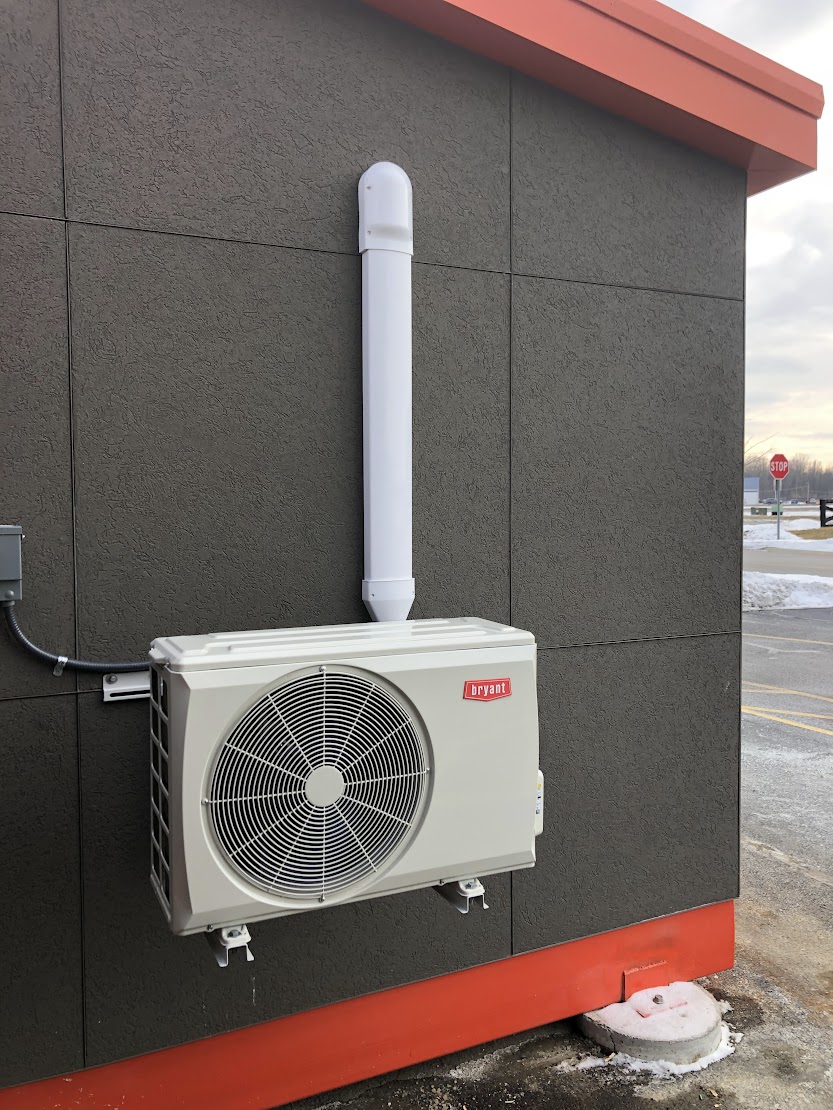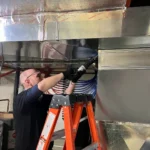A malfunctioning air conditioner during the sweltering heat of summer can quickly turn your home into an oven. Whether your AC system is blowing warm air, making strange noises, or refusing to turn on, understanding repair costs and what to expect can help you navigate the process with confidence. Let’s explore the factors influencing AC repair costs, common issues, and how to ensure you get the best service.
How Much Does AC Repair Cost?
The cost of AC repair varies depending on the complexity of the issue, the type of air conditioning system, and the parts required. On average, AC repairs cost between $150 and $600, but for significant repairs, the price can climb as high as $1,500 or more.
Breakdown of Common AC Repair Costs
- Refrigerant Recharge
- Cost: $200–$600
- A refrigerant leak or low levels can prevent your AC from cooling effectively. Recharging and repairing leaks can quickly restore efficiency.
- Thermostat Replacement
- Cost: $100–$400
- A malfunctioning thermostat can disrupt temperature regulation, and upgrading to a programmable or smart thermostat may increase repair costs slightly.
- Fan Motor Repairs
- Cost: $300–$700
- If the fan motor fails, the air won’t circulate properly. This is a moderately expensive repair, often necessary for older systems.
- Compressor Replacement
- Cost: $1,200–$2,500
- The compressor is the heart of your AC system. If it fails, the repair cost is significant, and in some cases, replacement of the entire unit might be more economical.
- Clogged Drain Lines
- Cost: $75–$250
- Drain line blockages can cause water leaks and damage. Clearing the blockage is usually a quick and affordable repair.
- Capacitor or Contactor Replacement
- Cost: $150–$400
- These electrical components are crucial for starting and running your AC. Repairs are typically straightforward but essential.
Factors That Influence AC Repair Costs
Several variables impact how much you’ll pay for AC repair:
Type of AC System
Different air conditioning systems have varying repair needs:
- Central Air Systems: Repairs tend to be pricier due to the complexity of ductwork and larger components.
- Ductless Mini-Splits: These systems are more modular, making some repairs more affordable, though parts can be costly.
- Window Units: Repairs are typically less expensive but may not always be cost-effective compared to replacement.
Age of the Unit
Older units may require harder-to-find parts and more frequent repairs, which can drive up costs.
Extent of Damage
Minor issues like clogged filters or drain lines are affordable fixes, while major component failures such as the compressor or evaporator coil demand a heftier investment.
Timing of Repairs
Emergency repairs during peak summer months can cost significantly more due to higher demand for HVAC services.
Location
Labor rates vary by region, with urban areas generally commanding higher prices.
Common AC Issues and What to Expect
1. AC Blowing Warm Air
Warm air from your AC can stem from refrigerant issues, dirty coils, or a faulty compressor.
- Repair Cost: $150–$1,200
- What to Expect: A technician will inspect refrigerant levels, clean coils, or repair the compressor.
2. Strange Noises
Loud banging, hissing, or buzzing noises indicate mechanical issues or refrigerant leaks.
- Repair Cost: $150–$750
- What to Expect: Repairs could include tightening loose parts, replacing components, or addressing leaks.
3. Leaking Water or Refrigerant
Leaks can result in water damage or inefficient cooling.
- Repair Cost: $75–$600
- What to Expect: Technicians will clear drain lines, repair leaks, and possibly replace refrigerant.
4. AC Not Turning On
If your AC won’t start, the problem may be electrical or mechanical.
- Repair Cost: $150–$400
- What to Expect: The technician will inspect the capacitor, contactor, or thermostat for faults.
5. Frequent Cycling
An AC that turns on and off too often may have an issue with airflow or the thermostat.
- Repair Cost: $100–$500
- What to Expect: Adjustments to thermostat placement or repairs to blocked vents and filters may be necessary.
When to Call a Professional
While some minor AC issues can be resolved with DIY maintenance, more significant problems should always be handled by a licensed HVAC professional.
Call a Professional If:
- Your AC Doesn’t Turn On: Electrical issues or major component failures require expert diagnosis.
- You Detect Unusual Smells: Burning smells or a musty odor could indicate wiring problems or mold growth.
- You Hear Loud Noises: Persistent or unusual sounds signal internal damage.
- There’s a Refrigerant Leak: Handling refrigerant requires specific certifications due to environmental and safety regulations.
- Energy Bills Skyrocket: Inefficiency is often caused by internal component failures that need professional attention.
How to Choose the Right HVAC Technician
Finding a reliable HVAC professional is critical to ensuring quality repairs at a fair price.
What to Look For:
- Licensing and Certification: Verify that the technician holds proper certifications such as NATE (North American Technician Excellence).
- Experience: Look for professionals experienced with your specific AC system.
- Transparent Pricing: Request detailed estimates before approving repairs.
- Customer Reviews: Check online reviews or ask for recommendations from friends and family.
- Emergency Services: Ensure the company offers 24/7 availability if you’re dealing with a pressing issue.
Tips to Avoid Costly Repairs
Preventative maintenance is the best way to keep repair costs low and extend the lifespan of your AC system.
Routine Maintenance Tips:
- Change Filters Regularly: Replace air filters every 1–3 months to maintain airflow and efficiency.
- Clean Coils: Dirty coils can reduce cooling capacity; clean them annually or as needed.
- Inspect Ductwork: Seal leaks and ensure ductwork is clean to prevent energy loss.
- Schedule Annual Tune-Ups: A yearly inspection can identify potential issues before they escalate.
- Monitor Thermostat Settings: Avoid overworking your AC by keeping the thermostat at a consistent temperature.
AC repair costs depend on the nature of the problem, the type of system, and the timing of the service. While minor issues may only set you back a few hundred dollars, significant repairs like compressor replacement can be a larger investment. Knowing what to expect and when to call a professional can save you time, money, and frustration.
By staying on top of maintenance and choosing a qualified technician for repairs, you can keep your AC system running efficiently and ensure a cool, comfortable home all summer long.







